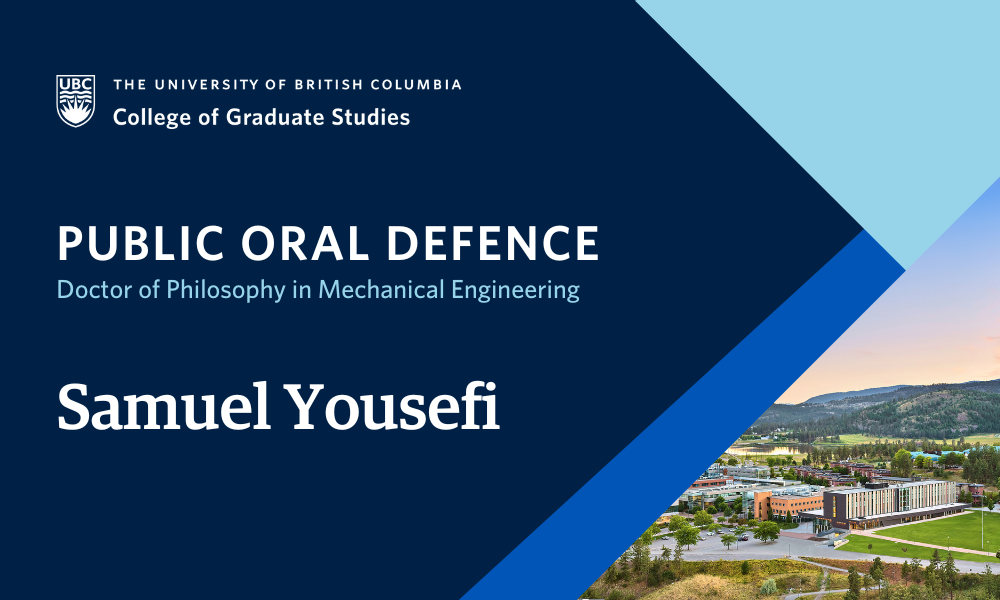
- This event has passed.
Dissertation Defence: Decision Support Frameworks for Unlocking the Potential of Blockchain in Sustainable Supply Chain Management
October 28, 2024 at 11:30 am - 3:30 pm

Samuel Yousefi, supervised by Dr. Babak Mohamadpour Tosarkani, will defend their dissertation titled “Decision Support Frameworks for Unlocking the Potential of Blockchain in Sustainable Supply Chain Management” in partial fulfillment of the requirements for the degree of Doctor of Philosophy in Mechanical Engineering.
An abstract for Samuel Yousefi’s dissertation is included below.
Examinations are open to all members of the campus community as well as the general public. Please email babak.tosarkani@ubc.ca to receive the Zoom link for this exam.
ABSTRACT
The increasing complexity of global supply chains and the limitations of traditional supply chain management systems have highlighted the need for enhanced transparency, sustainability, and resilience. Blockchain technology, with its decentralized and immutable ledger system, has emerged as a promising solution to these issues, offering potential improvements in data integrity and traceability. However, the practical adoption of blockchain is hindered by significant barriers, including high implementation costs, technical complexities, and managerial conservatism. Previous studies do not effectively bridge the gap between theoretical insights and practical applications. This gap emphasizes the need for advanced, context-specific tools to comprehensively assess the benefits and challenges of integrating blockchain into supply chains. This research aims to develop a comprehensive feasibility study to examine the potential of blockchain for improving sustainable supply chain management. Therefore, advanced decision support frameworks are proposed to systematically model and address the decision-making problems inherently linked with the adoption of blockchain technology. These frameworks are designed by incorporating organizational theories, systems modelling, robust decision-making, and mathematical programming. Therefore, the research objectives are fourfold: (i) to develop a robust system analysis-based framework to explore and prioritize key enablers of blockchain adoption; (ii) to introduce a risk management-enabled decision approach to mitigate potential barriers to blockchain adoption; (iii) to propose decision support framework based on the technology-organization-environment theory to select the best-fitting blockchain platform; and (iv) to develop an optimization model that incorporates blockchain compatibility in strategic sourcing and supply chain coordination under competitiveness. The importance of the developed frameworks lies in their ability to handle both the strategic and operational complexities of blockchain adoption under uncertainty. This, in turn, facilitates the successful integration of blockchain to improve sustainable supply chain performance and coordination. The proposed comprehensive framework also helps organizations navigate the complexities of global supply chains while achieving their sustainability and resilience goals. By leveraging these advanced decision support frameworks, organizations learn how to optimize their operations through blockchain characteristics and transform traditional and linear supply chains into more dynamic and integrated networks.